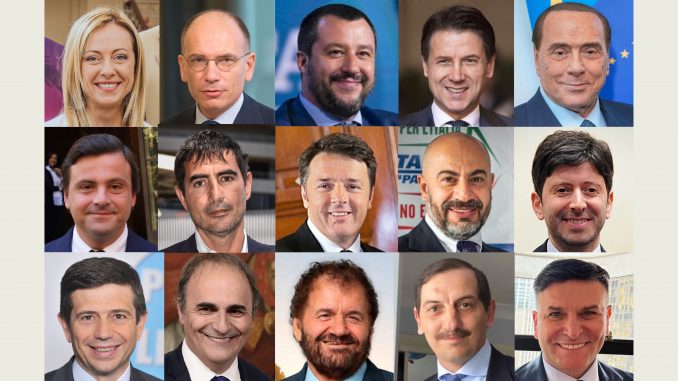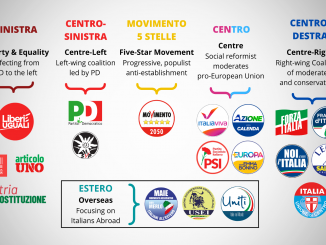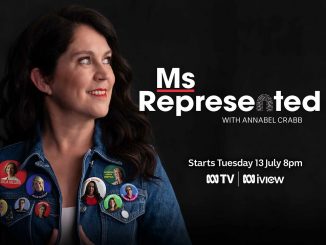
Are you an Italian Abroad trying to navigate through the myriad of political parties? This comprehensive summary gives you a full picture of Who’s Who in the September 25 Italian General Election, the major policies and alliances.
Giorgia Meloni – Fratelli d’Italia:
A national and conservative and right-wing political party, led by Giorgia Meloni, the only woman-leader of a major Italian party in decades. It holds socially conservative, nativist, and anti-immigration domestic stances, wanting to “re-discuss” EU treaties. The party supports policies that help boost the birth rate of Italian nationals to ease the need for migrant labour. It also adopts the slogan “God, country and family”, emphasising the sacredness of life, the “traditional family” and the values of patriotism against the left. According to polls, the party is now Italy’s major force and key player in a centre-right future government.
Enrico Letta – Partito Democratico:
A broad reformist, pro- European and centre-left catchall party, operating in an organic relationship with other socialist, democratic, progressive forces to promoting a common social-democratic political world-view. Its values are primarily founded on the Constitution of the Italian Republic, the Resistance and Anti- fascism. While in government, it supported and approved several civil rights, including civil unions for homosexual couples, fast divorce and the therapeutic use of cannabis. The party wants to stop climate change and relaunch sustainable development through a zero emissions target by 2050.
Matteo Salvini – Lega:
A right-wing, anti-immigration political party in Italy, led by Matteo Salvini. Its political base is in northern Italy, where the party gets most of its support and where it has maintained a traditional regional and autonomist outlook. It opposes illegal immigration. In foreign policy, the party is strongly pro-US and pro-Israel, but has also supported friendlier ties with Russia. Economically, it advocates a 15% flat tax, while also espousing aspects of both economic liberalism and Keynesian economics. Finally, the League opposes an increase in the retirement age. It is formally part of the centre-right coalition, along with Forza Italia and Fratelli d’Italia.
Giuseppe Conte – Movimento 5 Stelle:
A catch-all, post-ideology, anti-establishment and populist political movement led by Giuseppe Conte. The party was founded by comedian Beppe Grillo and web strategies Gianroberto Casaleggio, following ‘Vaffanculo Day’ (Fuckoff Day) in 2007. M5S promotes the direct participation of citizens, through e-democracy. It embraces degrowth, the creation of “green jobs”, and the rejection of polluting and expensive public works, including incinerators and high-speed rail. Being once critical of traditional parties, it has formed government with both centre-right and centre-left coalitions, shifting the focus of its policies.
Silvio Berlusconi – Forza Italia:
A centre-right political party, led by Silvio Berlusconi and Antonio Tajani. It presents itself as a “liberal”, “Catholic”, “reformist”, and “moderate” alternative to the left in alliance with the right, but not rightist itself. It aims at representing business owners’ interests and has often advocated for a reduction of taxation, red tape, and public expenditure. One of its latest proposals is the introduction of a flat tax. In addition, FI is more supportive of free trade agreements rather than protectionism. It also supports the European Union, despite elements of criticism, NATO, and a close relationship with the United States.
Carlo Calenda – Azione (formerly allied with +Europa):
A liberal centre to centre-left political party and coalition led by Carlo Calenda as anti-populist and anti-souverainist. The party aspires to be the home of pure liberals, but also liberal progressives and some Christian democrats. The +Europa component (which has since left the coalition and joined the Partito Democratico) are however the heirs of historical radicalism and the idea of the secular state. It also favours the decriminalization of surrogacy, euthanasia, regulation of the use of soft drugs, same sex and civil union, adoption, automatic recognition of children at birth and opportunities for children to separated parents.
Nicola Fratoianni – Alleanza Verdi Sinistra:
A left-wing political alliance active in Italy, launched as a federation of two political parties, Italian Left (SI) and Green Europe (EV). It includes former members of Left Ecology Freedom, dissidents from the Democratic Party like Future to the Left, and splinters from the Five Star Movement. Its ideology is a mix of democratic socialism liked to the Communist Refoundation Party, social democracy and anti-austerity issues. It also has regional basis in German-speaking South-Tyrol, as a green and regionalist party, with eco-socialist and social-democratic tendencies.
Matteo Renzi – Italia Viva (Now allied with Carlo Calenda – Azione):
A liberal and reformist political party, led by Matteo Renzi. It promotes republican and anti-fascist values expressed in the Constitution of Italy, as well as in the Charter of Fundamental Rights of the European Union and the Universal Declaration of Human Rights. It also supports gender equality, the relaunch of globalization and a strong opposition to all forms of protectionism and souverainism. It also supports a more incisive European political and economic integration, with the direct election of the President of the European Commission.
Gianluigi Paragone – No Europa per l’Italia:
An Eurosceptic political party in Italy. Its founder and leader is Gianluigi Paragone, an Italian senator and former TV journalist who drew inspiration for his movement from Nigel Farage’s Brexit Party, with the aim of taking Italy out of the European Union. The party argues that Italians deserve a strong, free and independent country. It opposes Mario Draghi’s national unity government to contain Covid-19. Italexit strongly opposed the need for a Green Pass. to work and travel. Paragone describes his opposition to the mandatory vaccination as a “war of religion”.
Roberto Speranza – Articolo 1 (Now allied with Partito Democratico):
A left-wing political party founded in 2017 led by Roberto Speranza, outgoing Minister for Health. The party supports the centrality of work, new rights, full equality, European integration, secularism, social justice, non-violence and the protection of the environment. It works to create a new left, promoting the values of Antifascism and the Resistance. Made up of those who left the Partito Democratico in 2016, it is expected that the party will run once again on a joint ticket with the centre- left in a new coalition titled ‘democrats and progressives’ led by Enrico Letta.
Maurizio Lupi – Noi con l’Italia:
A centre-right, Christian- democratic and liberal-conservative party, led by Maurizio Lupi. The party believes in reconciling Christian-inspired social policies with its liberal ideas in economics, without completely disregarding the principles of the social economy. It favours the strengthening of the national health system, lowering the tax burden, strengthening of the guarantee fund for small and medium-sized enterprises. In relation to migration policies, it proposes that immigration be regulated through repatriation and international cooperation.
Ricardo Merlo – MAIE:
A centrist party representing Italians abroad, led by Ricardo Merlo and predominantly active in South America. It aims to promote greater access to consular services and digitalisation for Italians abroad, while also focusing on the cultural and linguistic patrimony of expatriate communities. MAIE also proposes cutting taxes for Italian expats, a wider granting of Italian citizenship to descendants of Italian migrants, more funding to media abroad and incentives for the exporting of Made in Italy together with the return of expats to Italy in a targeted tourism program.
Eugenio Sangregorio – USEI:
An independent party with a particular focus on Italians abroad. In 2018, the party’s leader Eugenio Sangregorio was elected to Italian Parliament as the most voted deputy in South America. It proposes equal rights for all Italian citizens living abroad, especially through the return of members of the communities of Italian emigrants into the Italian labour system. It also supports a Strategic Italian- South American Production Pole to boost economic cooperation. In addition, it actively pursues policies to strengthen teaching Italian and consular networks.
Emanuele Esposito – Movimento Uniti-Italia nel Mondo:
A grassroot political movement known principally in Australia and led by Emanuele Esposito and Rocco Papapietro. It intends to involve Italians abroad, desires for renewal of inefficient government structures and bureaucracy, and to further improve the rights and aspirations of Italians living abroad. It advocates for a greater collaboration among associations, empowering new generations of leaders abroad, the plurality of the media and to enhance the contribution of expatriates and descendants in the cultural, political and economic life of Italy.
Massimo Romagnoli – Movimento per la Libertà:
A movement created by Massimo Romagnoli to defend the rights of Italians abroad and give voice to their legitimate demands. It sets itself as ambassador of the promotion, enhancement and protection of all the excellences of Italy, including its products, brands, traditions and values. It supports the elimination of national and local taxes on the first home, even for Italians abroad, free-to-air RAI for all Italians abroad, opening of new consulates, protect Italian catering, Made in Italy fashion and design, university and distance learning.
(Marco Testa)




Be the first to comment